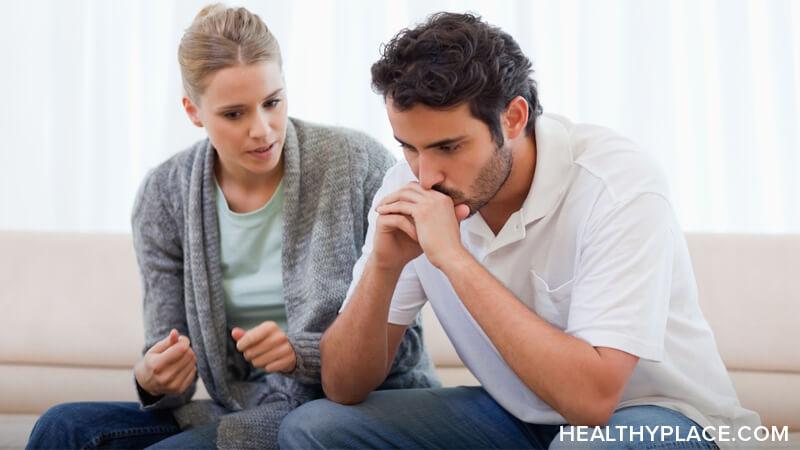When Talking About Depression Isn’t Helpful

Talking about depression isn’t always helpful. Please know that I support movements to talk about our mental health. (If you haven’t yet, please read my previous post, part one of this two-part series, titled When We Need to Talk About Depression.) Good things happen when we talk about our depression. There comes a point, though, when the scales begin to tip and when talking about depression isn’t helpful.
Why Talking About Depression Isn't Always a Good Thing
In middle school, I had a friend who was also suffering from depression. We would talk about our depressed feelings together. When I shared this with my psychiatrist, he warned me to not constantly talk about depression. This was solid advice since talking about our problems – constantly revisiting them over and over – can make things worse (Does Talking/Writing About Depression Make You Depressed?).
Walter Mischel, professor of psychology at Columbia University and author of The Marshmallow Test, says,
“Common wisdom suggests that if we thoroughly revisit our negative experiences to try to understand why they happened, we’ll eventually be able to move on. However, new research is showing that some people only get worse by continuing to brood and ruminate. Each time they recount the experience to themselves, their friends or their therapist, they only become more depressed. Self-distancing, in contrast, allows them to get a more objective view, without reactivating their pain, and helps them get past the experience.”
Be Mindful of Where Your Conversations Go When Talking About Depression
When possible, after you’ve acknowledged the depression and have sought help, turn your conversations toward positive, productive themes. Be intentional about what you talk about. Can you talk about what inspires you or what you’re passionate about? Maybe you can learn a new skill or hobby and talk about that. And what about the people you’re talking with? Ask them about their lives and hobbies and passions. The depression will be there, but you can crowd out some of those depressed thoughts by introducing new, inspired themes, leaving you to feel better.
I am grateful that my mental health team subscribes to the idea that “talking about depression isn’t always helpful.” Even in my therapy sessions, they have, after an appropriate amount of time, guided our conversations away from talking about my depressed feelings. As someone who tends to ruminate, I welcome this guidance to help me move on to other themes.
Please check out my video below for more on when to talk about depression and when talking about depression isn't such a great idea.
Sources:
Sample, Ian, "Aspiring and a Stiff Upper Lip Are Best Remedies for a Broken Heart". The Guardian. Sep. 25, 2014.
APA Reference
Sedas, M.
(2018, July 19). When Talking About Depression Isn’t Helpful, HealthyPlace. Retrieved
on 2026, March 3 from https://www.healthyplace.com/blogs/copingwithdepression/2018/7/when-talking-about-depression-isnt-helpful
Author: Michelle Sedas
So insightful. For those of us trying to help a family member deal with depression, we never know the right path to take. Talk about it, is the path we have been taking. I thought it would be helpful that he knew others were have the same feelings he was having, but I was definitely wrong. It is very difficult to get our son to talk about anything positive, but I am going to commit to trying to talk about things other than his depression.
Hello Dayna,
I'm so grateful that you shared that this post was insightful. I do think it's very important to crowd out those depressed thoughts with more uplifting things. It's one of the most important things I've learned as I cope with depression. Thank you so much for this comment. I wish you and him all the best.
Michelle Sedas